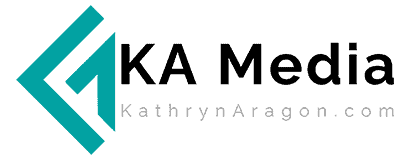Writers and travelers are mesmerized alike by knowing of their destinations. ~Eudora Welty
The first requirement of writing is to know where you’re going when you sit down to write.
If you can see your message clearly, writing is easy. If it’s somewhere “out there,” shimmering on the horizon like a mirage, fuzzy around the edges, then writing is as hard as digging a well in a rock garden.
You may be doing everything right, but you can’t be sure you’ll hit water. You’ll be lucky if you get beneath the rock.
In order to write well, you must know what you want to say. But even more than that, you must be able to “see” your message clearly.
Don’t get me wrong, I’m not suggesting that you have the entire project written in your head before you sit down to the computer.
But you must see the endpoint. Otherwise, how do you know where to aim?
An example from my own writing
A few years ago, I was asked to rewrite the Southwest Dallas Christmas Pageant. This is a full-length play about Mary and Joseph’s discovery and acceptance of their role in the Christmas story.
At that time, the play was a series of scenes with no real story arc. The opening love story between Mary and Joseph ended in the pageantry of Jesus’ birth. But there was no connection between Act 1 and Act 3. The story introduced in Act 1 was nothing more than an entertaining intro.
I had seen the play evolve from just one or two scenes to a full-length production. So when I was asked to turn this series of scenes into an honest-to-goodness story, it was easy for me to visualize the end result.
Not only did I know the Bible story, I knew precisely how the director was approaching it. I knew where the story line needed to go. I’d heard the characters talk, so I knew their personalities. All I needed was time to write.
Because I was working a full-time job then, I had a hard time finding a large enough chunk of time to tackle the project. Soon, though, a long weekend opened up. My Friday off happened to fall on the same weekend my family had an out-of-town commitment.
I had three glorious days all to myself. No interruptions. And no excuses.
I woke up early on Friday and sat down to write. Act 1 was already clearly in mind. I’d been able to visualize the changes I wanted to make, so the early scenes flew off the keyboard.
Then I ran out of words.
But here’s my point: Because I had such a clear vision of the final play, I knew exactly where the story was going. I paced the room for a while, took a short break, and Act 2 clarified. I could see where it needed to go in order to take the story home.
Never in my life have I enjoyed such a writing flow. On Sunday afternoon, when my family pulled into the driveway, I was putting the finishing touches on Act 3.
I had written a full-length three-act play in three days, and I knew in my bones it was good.
Visualization gives you clarity
I don’t deny I had a huge head start on this script. The director’s vision for the play had already been acted out for me. All I had to do was turn that vision into a story, give it direction and closure.
As a writer, you must be your own director.
You must be able to clarify what you’re saying and why. What’s the point, really? Why should anyone want to read your words?
Copywriters, why should I read your sales letter or landing page?
Fiction writers, why should I turn off the TV and read your novel instead?
Magazine writers, what is your article going to add to my day?
What’s in it for me?
Visualization helps your reader connect
Whenever a favorite book is made into a movie, I hesitate to watch it. I’ve already scripted the book in my imagination. I see the characters, hear their voices and feel their presence.
If the movie doesn’t match the picture in my head, I’m disappointed.
What’s going on here? Is it that someone misread my favorite book? Or is it perhaps that the writer visualized the story so clearly that I caught his or her vision? It’s true, I’ve interpreted it according to my experiences, but within that framework, I see what the writer sees.
It’s the writer’s clear vision of the story that helps me connect with it. And once that connection is made, I’m hooked.
As writers, we need to understand the importance of connecting with our readers — no matter what type of writing we do.
I’ll talk more about that in my next post. But until then, feel free to share your thoughts. Have you ever gotten so into the zone that all you had to do was keep up with the flow?
In my opinion, the secret is visualization. But what about you? How does it happen for you?
photo credit: belboo


